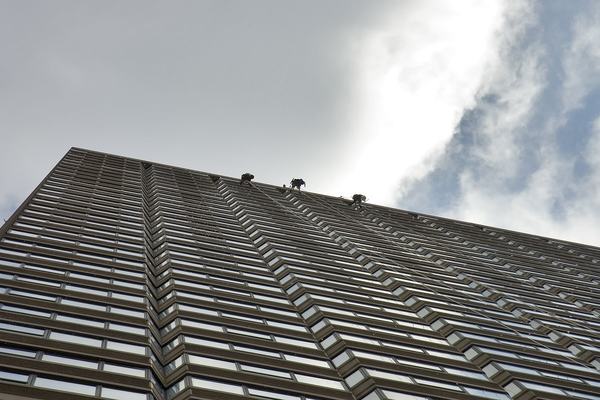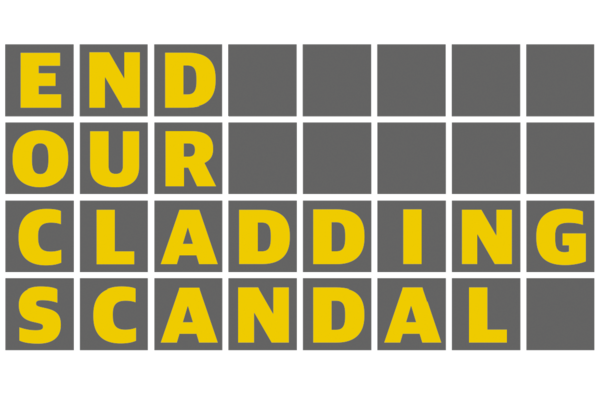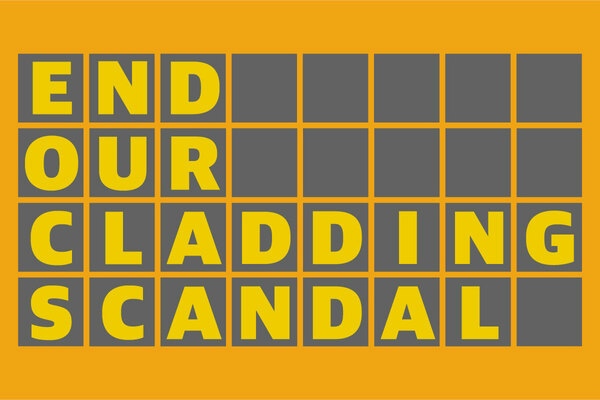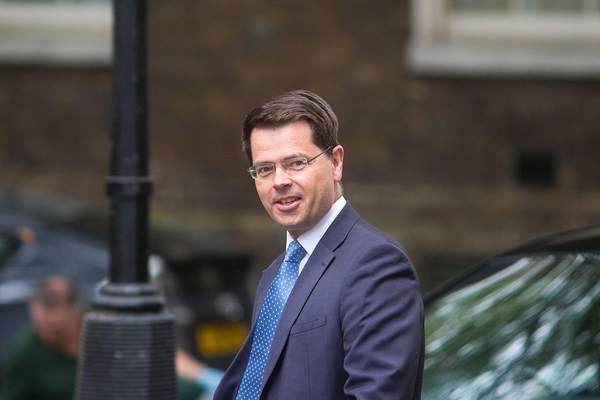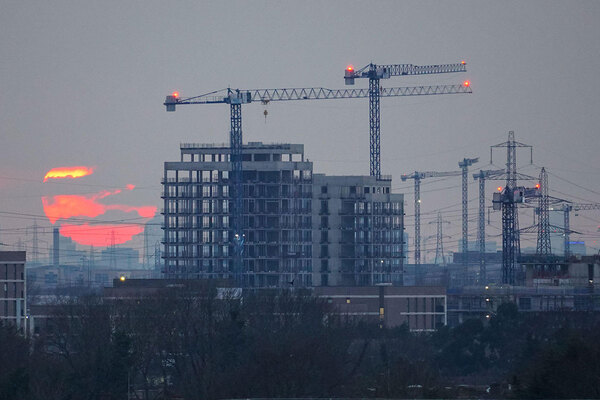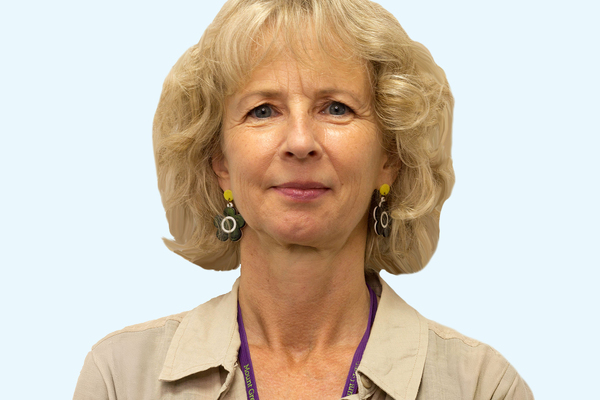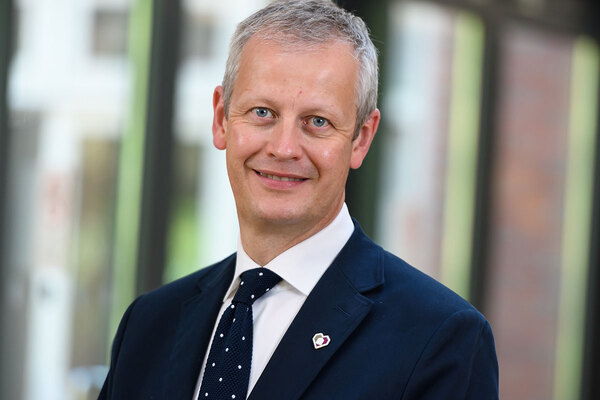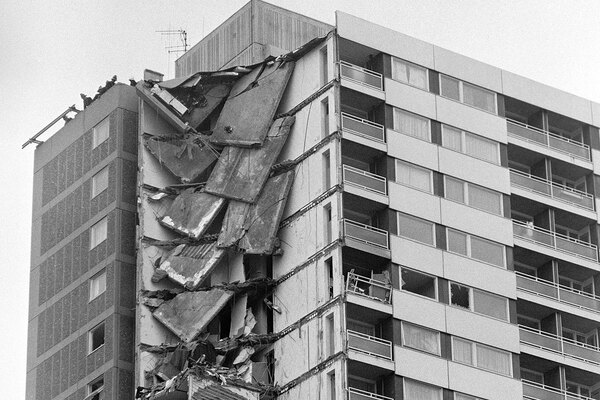Leaseholders warn against ‘cladding lottery’ after government announces fund
Groups representing leaseholders trapped in private residential blocks with dangerous cladding have warned ministers not to create a “cladding lottery” after the announcement of a fund this morning.
Ministers caved in to pressure this morning and announced a £200m pot to pay for the removal of dangerous aluminium composite material (ACM) cladding from private residential blocks.
It follows the End Our Cladding Scandal campaign by Inside Housing and affected leaseholders, which has called on the government to pay for the removal of cladding from private blocks.
Reacting to the news this morning, the UK Cladding Action Group (UKCAG) and the Manchester Cladiators said that the fund was welcome, but that it effectively abandoned residents of buildings with dangerous non-ACM systems.
The government is yet to provide funding for buildings with systems such as high-pressure laminate cladding in the private or social sector, and many private and residential building owners are removing them.
In a statement, the UKCAG said: “It is clearly right that the government funds the removal of dangerous cladding, and we are glad ministers have finally recognised that – although it is a shame we have had to campaign so hard to force them to this point.
“While this will be a relief for thousands trapped in buildings with ACM cladding we must not forget the many, many leaseholders and social housing tenants living in blocks with other forms of unsafe cladding and internal fire safety defects who will be excluded from this help. We must also not forget the life-changing sums of money for interim fire safety measures that leaseholders are paying, that has been excluded from this announcement.
“Fire does not distinguish between the different types of failed cladding out there. This inadequate response will be looked back on in shame when the next Grenfell tragedy occurs.
“The announcement effectively brands this as a cladding lottery. Some people win from today’s announcement. But many still lose and are mortgage prisoners.”
The Manchester Cladiators, who represent a collective of affected blocks in Greater Manchester, said that the government’s announcement was “unsatisfactory”.
They added: “After leaving thousands of Manchester and national residents suffering for nearly two years, the government has finally announced a cladding fund which meets some of their needs. However, many residents are left helpless.”
Sam Cole, a resident of City Gate in Manchester’s Castlefield district and co-founder of Manchester Cladiators, said: “Although it is welcome to finally learn that the government has heard our calls for help, there are still many unanswered questions about this proposed cladding fund. Many Manchester residents with similar problems to us are also unlikely to benefit from this fund. And we will continue to fight with Manchester Cladiators to support them.”
Amy du Quesne and James Oates, a couple living in Skyline Central 1 in Manchester’s Northern Quarter, said: “This announcement changes nothing for us. We are still fearful for our safety and financial futures. Until the government recognises that people living with fire issues in non-ACM clad blocks are just as much at risk as the residents of Grenfell Tower, we will continue our fight to make our homes safe.”
Suzanne Richards, executive member for housing at Manchester City Council, added: “We do not differentiate between residents with Grenfell-style ACM cladding and other fire issues and strongly believe the government should provide funding for all affected residents.
“It is simply unacceptable that some residents have won the ‘cladding lottery’ and others are left facing stress and life-changing bills of up to £80,000 each. The council will continue to give its full support to Manchester Cladiators until every affected Manchester resident feels safe in their homes.”
The government is planning to test non-ACM systems to determine which need to be removed. This testing has been delayed but is due to start soon. The Local Government Association has expressed “grave concern” about this process, which has no pass or fail criteria.
In January, academics warned that the next Grenfell-type disaster would be in a high-pressure laminate block due to the single-minded focus of the government on ACM.
End Our Cladding Scandal: campaign aims
- Government provides a fund to cover the cost of cladding removal and remedial works on private blocks
- A firm timescale is set out of no more than two years for the work to be carried out
- Residents are reimbursed for the interim fire safety costs incurred, and funding is to be provided for necessary internal fire safety measures identified by a competent fire risk assessor
End Our Cladding Scandal: open letter
Dear communities secretary,
“There is nothing more important than ensuring people are safe in their own homes.”
These are your words. You have repeated them many times over the last year – in speeches, statements to Parliament and press releases. They are words we agree with and we believe that you do too.
The problem is that right now they are in danger of ringing hollow. Since the horrifying fire at Grenfell Tower, 434 tower blocks across the country have been found to have dangerous aluminium composite material cladding systems. Last year your government took the decisive action of promising to pay for the removal of these systems from social housing towers.
Removal work is happening more quickly on social housing towers - although there is still much to be done. We urge you to continue to oversee this work to ensure it is done as swiftly and safely as possible. But with no money allocated for the private sector, the residents of private blocks are left stranded.
Of the 176 private residential towers found to have dangerous ACM cladding, remediation work has completed on just 10. Flats in these towers are close to worthless, making it impossible to sell and leaving residents trapped. This leaves tens of thousands of leaseholders and private tenants facing the mental trauma of sleeping each night with the fear of a devastating fire. And this number will only grow as blocks with other forms of dangerous cladding are discovered.
This fear is compounded by the fact that the bills for the work to make buildings safe is being passed to leaseholders. These bills are crippling – demands are being made for sums of up to £80,000 per flat. The cost of interim safety measures, such as fire wardens, are also being met by the residents of these towers. The pressure of this situation is leading to nothing short of a mental health crisis among affected leaseholders.
The government has attempted to pressure developers and building owners to pay. There has been some success in this regard, but that alone will not solve this crisis. Many companies have declared an intention not to pay. Many others who have made commitments are acting too slowly. It is believed around 10,000 people live in blocks where there is no plan in place for the removal of the cladding.
Local authority enforcement powers provide no protection against leaseholders being billed and, in some instances, simply crystallises the threat of demands for payment. The law is also not on residents’ side. Every tribunal decision so far has found against the leaseholders. Residents of these blocks cannot wait years for new legislation to solve this problem. Action is needed now.
We need the government to set up a fund to pay for all unsafe residential homes to be made safe, both inside and out and including non-ACM systems. This must not be provided as loans, which would simply saddle leaseholders with debt. We need this fund to be tied to a commitment to complete the work within two years. We need those who have spent their life savings on interim measures to be recompensed. And we need all of this to be announced by June 14 this year – the second anniversary of Grenfell.
This is not about apportioning blame or liability. Blame matters far less than doing what is necessary to make these blocks safe. And the cost of not acting is far higher than making these homes safe. As you have so frequently said – nothing is more important.
Yours sincerely,
Martin Hilditch, editor, Inside Housing
Fran Reddington, Green Quarter, Manchester, on behalf of Manchester Cladiators
Ritu Saha, Northpoint Bromley and William Martin, Metis Building, Sheffield, on behalf of the UK Cladding Action Group
Natasha Elcock, chair, Grenfell United
Kate Henderson, chief executive, National Housing Federation
Terrie Alafat, chief executive, Chartered Institute of Housing
Andy Burnham, Mayor of Greater Manchester
Lord Gary Porter, chair of the Local Government Association
Polly Neate, chief executive, Shelter
Jane Duncan, chair of the expert advisory group on fire safety, RIBA
Andy Dark, assistant general secretary of the Fire Brigades Union
Christina McAnea, assistant general secretary, UNISON
Sir Peter Bottomley, Conservative MP and chair of the All-Party Parliamentary Group on Leasehold and Commonhold Reform
Jim Fitzpatrick, Labour MP, and member of All-Party Parliamentary Group on Leasehold and Commonhold Reform
Mark Amesbury, shadow employment minister and Labour MP for Weaver Vale
Emma Dent Coad, Labour MP for North Kensington
Lucy Powell, Labour MP for Manchester Central
Rushanara Ali, Labour MP for Bethnal Green and Bow
George Howarth, Labour MP for Knowsley
Graham Stringer, Labour MP for Blackley and Broughton
Sandy Martin, Labour MP for Ipswich
Mike Amesbury, Labour MP for Weaver Vale and shadow employment minister
John Biggs, mayor of Tower Hamlets
Paul Dennett, mayor of Salford
Suzanne Richards, councillor and executive member for housing and regeneration on behalf of all Manchester's Labour Councillors
Sir Richard Leese, Labour councillor and leader Manchester City Council
John Leech, Manchester Liberal Democrat leader on behalf of all Manchester’s Liberal Democrat councillors
Darren Rodwell, executive member for housing at London Councils and leader of Barking and Dagenham Council
George Clarke, TV Architect
David Walker, bishop of Manchester
Graham Tomlin, bishop of Kensington
John Roberts, founder of AO.com
Josh Beaumont, professional rugby player, Sale Sharks and resident of affected building
Bill Beaumont, former England rugby captain
Jeremy Dyson, co-founder of the League of Gentlemen
Andy Moss, actor who has appeared on Channel 4’s Hollyoaks and resident
Cassie Bradley, actress and star of Coronation Street
Ross Mullan, actor who has appeared in Game of Thrones
Get Cape Wear Cape Fly, musician
Nour-eddine Aboudihaj, spokesperson for Justice4Grenfell
Mike Leonard, chief executive, Building Alliance
Kate Kendrick, founder, National Leasehold Campaign
Martin Boyd, chair, Leasehold Knowledge Partnership
Paula Higgins, chief executive, HomeOwners Alliance
Mark Henderson, chief executive, Home Group
Ben Clay, founding member of the Tenants Union
Hilda Palmer, acting chair of the Hazards Campaign
Susan Bright, professor of law, University of Oxford
End Our Cladding Scandal: full coverage
- Government-funded advice agency tells leaseholders they are 'likely' to be liable for cladding costs: LEASE, the government's official advisory service for leaseholders, has been advising residents they are likely to be liable to pay bills for cladding removal
- Residents evacuated after fire at block with Grenfell-style cladding: Residents of Vallea Court in Manchester are forced to flee after a fire breaks out in a lift shaft
- Leaseholders in London block pay nearly £3.5m for cladding removal: Despite promises from ministers to protect leaseholders, residents of the M&M Buildings near Paddington have been told to pay out
- Minister's will have blood on their hands if another death occurs, says MP: A round-up of the parliamentary debate on providing funding to remove dangerous cladding
- Sector leaders call for an end to the cladding scandal: backers of the campaign explain why they are calling on the government to end the scandal
- #EndOurCladdingScandal – campaign launch sees cladding stories go viral: a round-up of the Twitter reaction to the launch of our campaign
- Revealed: the mental health trauma of residents in blocks with dangerous cladding: read about the mental health impacts of dangerous cladding on high rises
- Victims of the cladding scandal: read the stories of some of those impacted by the crisis
- Why we need a cladding fund for private buildings: Manchester Council chief executive Joanne Roney explains why a fund to pay for cladding removal is necessary
- Why Inside Housing is joining with leaseholders to call for an end to the cladding scandal: our deputy editor Peter Apps on why we are supporting the campaign
- End our cladding scandal: the campaign’s aims and backers
